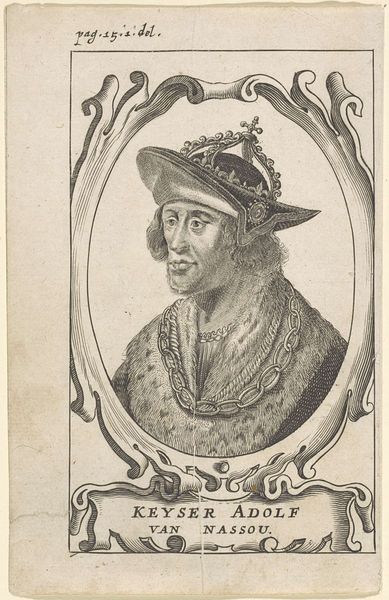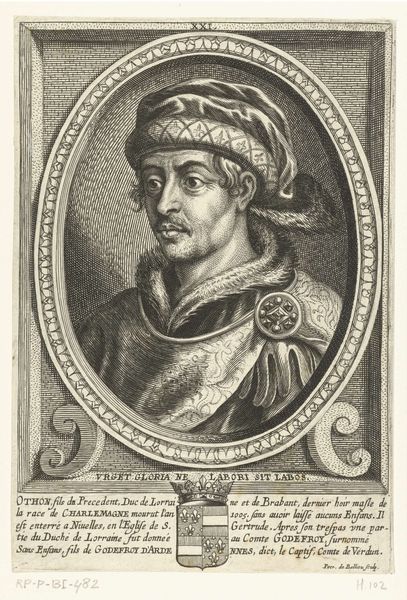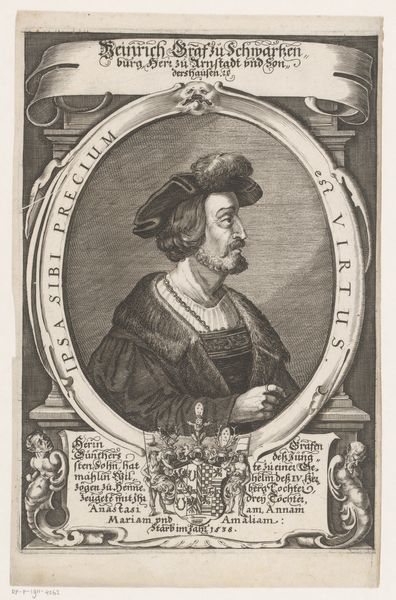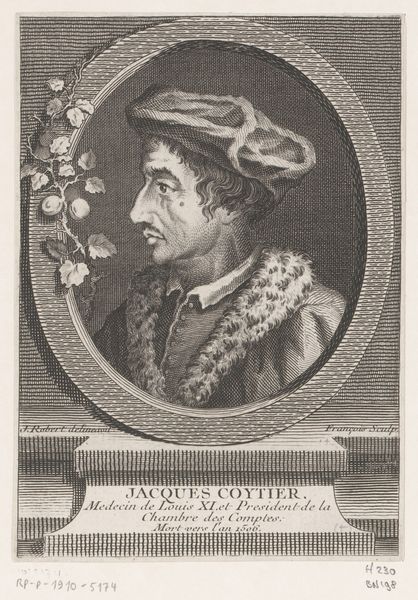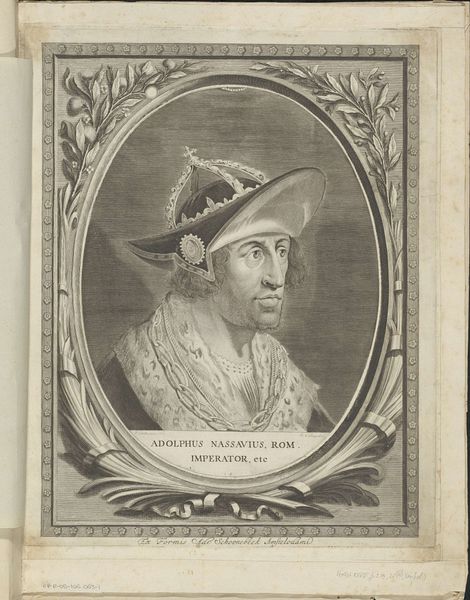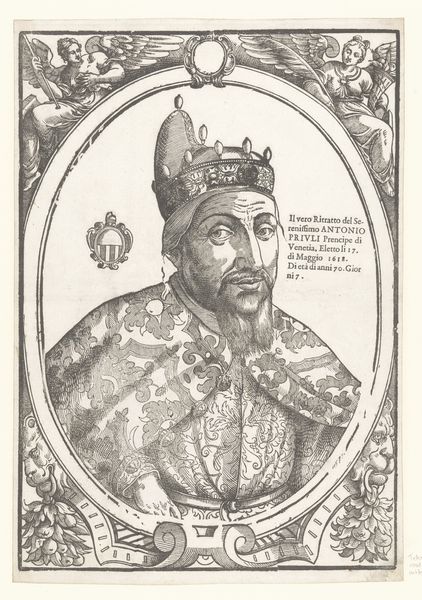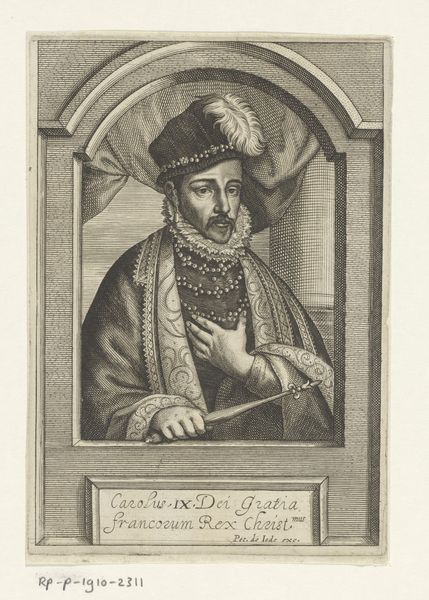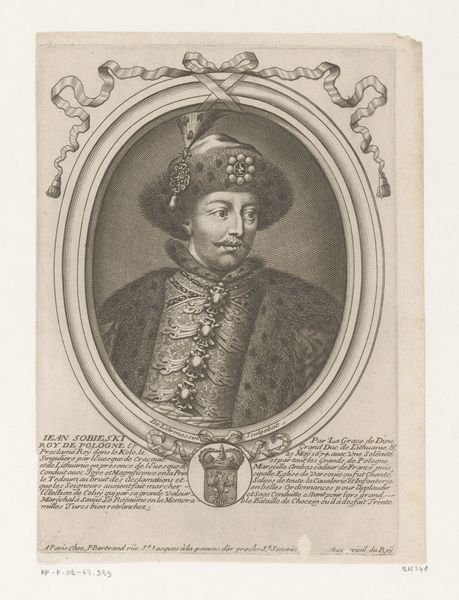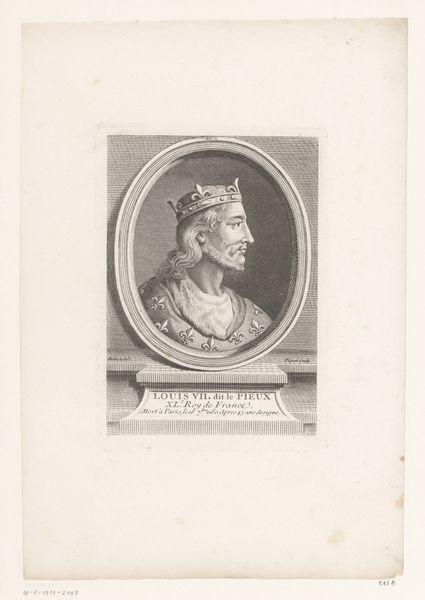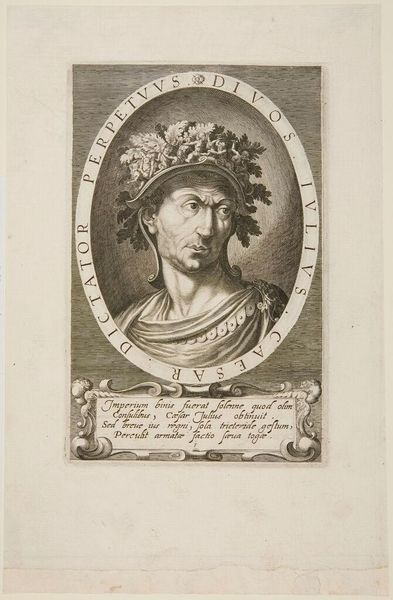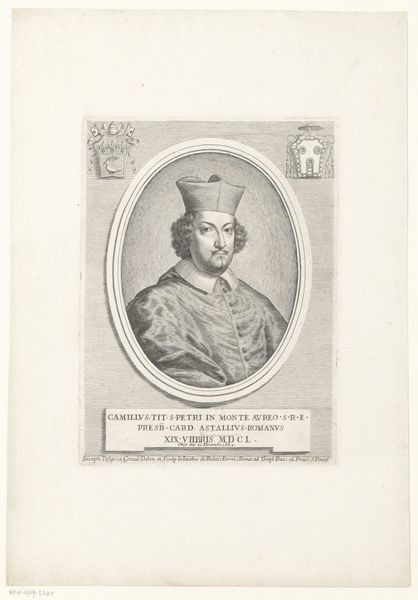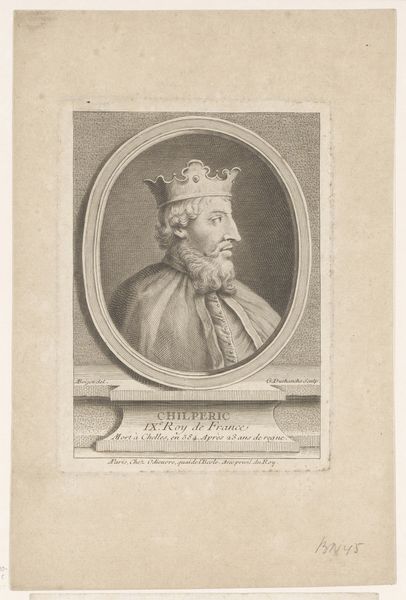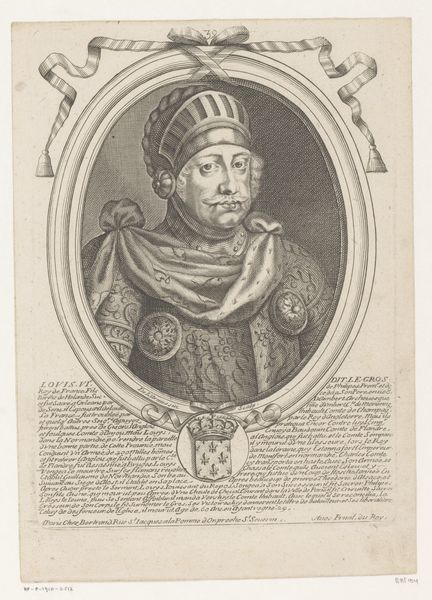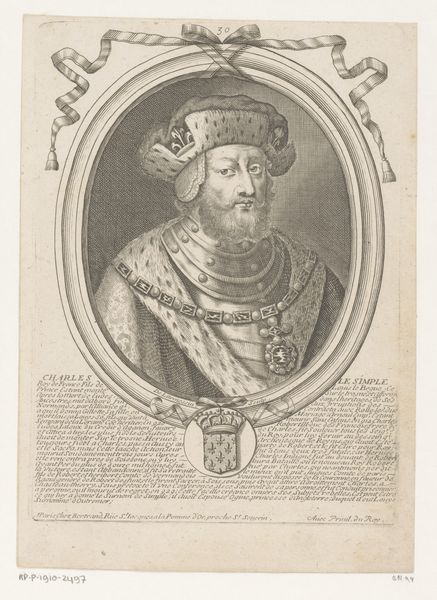
engraving
#
portrait
#
baroque
#
old engraving style
#
portrait drawing
#
history-painting
#
academic-art
#
engraving
Dimensions: height 443 mm, width 362 mm
Copyright: Rijks Museum: Open Domain
This portrait of Adolf of Nassau was made by Pieter van Sompel around the early 17th century using engraving. Engraving is a printmaking technique where the artist carves a design into a metal plate, usually copper. Look closely and you'll see the fine lines that create the image. The engraver uses a tool called a burin to cut these lines, and the depth and thickness of the lines determine the tone and shading of the final print. The process is painstaking, requiring immense skill. The plate would have been inked, and then wiped clean, leaving ink only in the engraved lines. Paper is then pressed against the plate, transferring the ink and creating the print. The image’s crisp details and tonal variations speak to the labor involved in the production process. Because it is reproducible, engraving allowed for wider dissemination of images, contributing to a growing visual culture. Ultimately, understanding the materials, the making, and the context allows us to fully appreciate its artistic and cultural value, challenging any perceived boundaries between fine art and craft.
Comments
No comments
Be the first to comment and join the conversation on the ultimate creative platform.
